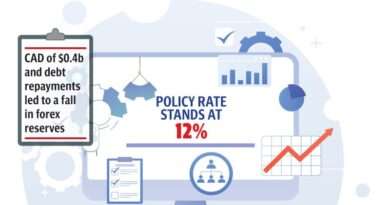ECC Concerned About Delays in Implementation of Decisions
|
Getting your Trinity Audio player ready...
|
Introduction
The Economic Coordination Committee (ECC) of the Cabinet, chaired by Federal Minister for Finance Senator Muhammad Aurangzeb, held a special meeting on Wednesday at the Finance Division. The meeting focused on reviewing the implementation status of various policy decisions made by the ECC, which pertain to multiple sectors including finance, interior, industries and production, inter-provincial coordination, housing and works, food security and research, power, and national health services regulation and coordination.
Overview of the ECC Meeting
Purpose and Scope
The primary objective of the ECC meeting was to assess the progress on the implementation of its earlier decisions. The committee expressed concerns over the delays in executing these decisions and emphasized the need for improved coordination among ministries to ensure timely compliance and completion of assigned tasks.
Attendees
The meeting was attended by several key figures, including:
- Minister for Industries and Production: Rana Tanveer Hussain
- Minister for Power: Sardar Awais Ahmed Khan Leghari
- Minister for Planning, Development & Special Initiatives: Ahsan Iqbal
- Minister for Commerce: Jam Kamal Khan
- Minister of State for Finance and Revenue: Ali Pervaiz Malik (attended virtually)
- Federal Secretaries and Senior Officers: From relevant ministries and departments
Review of Implementation Status
Comprehensive Briefing
The ECC received a comprehensive briefing on the overall implementation status of its past decisions. Each relevant ministry presented updates on the current status of issues pending with them, detailing the steps taken and those required to finalize the tasks.
Sector-Specific Presentations
Ministries responsible for different sectors provided detailed presentations on the progress of their respective assignments. This segment of the meeting highlighted both achievements and ongoing challenges in the implementation process.
Identified Issues and Concerns
Delays in Implementation
The ECC noted with concern the significant delays in implementing its decisions. These delays were attributed to various factors, including inadequate inter-ministerial coordination, bureaucratic hurdles, and lack of proactive engagement with stakeholder ministries and divisions.
Need for Improved Coordination
The committee emphasized the necessity for better coordination among the concerned ministries. It was recommended that ministries adopt a more proactive approach, utilizing proper escalation mechanisms to ensure timely compliance and completion of tasks.
Directives for Improvement
Enhancing Inter-Ministerial Coordination
The ECC directed the concerned ministries to enhance their coordination efforts and work more collaboratively with stakeholder ministries and divisions. This collaborative approach is expected to expedite the implementation process and reduce delays.
Establishing an Escalation Mechanism
To address the delays, the ECC recommended the establishment of a proper escalation mechanism. This mechanism will ensure that any issues hindering the implementation process are promptly addressed and resolved at the appropriate levels.
Ensuring Timely Compliance
Ministries were instructed to prioritize the timely compliance and completion of the tasks and responsibilities assigned to them. This directive aims to ensure that all decisions made by the ECC are implemented effectively and within the stipulated timelines.
Key Decisions and Their Impact
Finance Sector
In the finance sector, the ECC reviewed decisions related to budget allocations, financial regulations, and economic policies. The timely implementation of these decisions is crucial for maintaining fiscal stability and promoting economic growth.
Interior Sector
For the interior sector, the focus was on decisions related to national security, law enforcement, and public safety. Delays in implementing these decisions could have serious implications for national security and public order.
Industries and Production
The ECC examined the progress of decisions aimed at boosting industrial growth and enhancing production capacities. Ensuring timely implementation in this sector is vital for economic development and job creation.
Inter-Provincial Coordination
Decisions related to inter-provincial coordination are essential for maintaining harmony and cooperation among provinces. The ECC stressed the need for swift execution of these decisions to foster national unity and cohesion.
Housing and Works
The housing and works sector’s decisions were also reviewed, with a focus on infrastructure development and housing projects. Delays in this sector can affect the quality of life and economic prospects for citizens.
Food Security and Research
Ensuring food security and advancing agricultural research are critical for the country’s sustainability. The ECC emphasized the importance of implementing decisions in this sector to enhance food production and research capabilities.
Power Sector
The power sector’s decisions, including those related to energy production and distribution, were scrutinized. Timely implementation is necessary to address energy shortages and promote sustainable power solutions.
National Health Services Regulation and Coordination
In the health sector, the ECC reviewed decisions aimed at improving healthcare services and regulatory frameworks. Delays in this sector can impact public health and the overall efficiency of healthcare delivery.
Conclusion
The ECC’s special meeting highlighted the critical importance of timely implementation of its decisions across various sectors. By addressing the delays and enhancing coordination among ministries, the ECC aims to ensure that its policy decisions are effectively executed, ultimately benefiting the nation’s development and progress.
FAQs
1. What is the Economic Coordination Committee (ECC)?
The ECC is a key government body responsible for making economic policy decisions and coordinating economic activities across various sectors in Pakistan. It plays a crucial role in shaping the country’s economic landscape.
2. Why are there delays in the implementation of ECC decisions?
Delays in implementation can occur due to inadequate inter-ministerial coordination, bureaucratic hurdles, and lack of proactive engagement with stakeholder ministries and divisions. The ECC is working to address these issues through improved coordination and escalation mechanisms.
3. What steps are being taken to improve the implementation process?
The ECC has directed concerned ministries to enhance their coordination efforts, establish proper escalation mechanisms, and prioritize timely compliance and completion of tasks. These steps aim to reduce delays and ensure effective implementation of decisions.
4. How will the new directives impact the power sector?
The new directives will expedite the implementation of decisions related to energy production and distribution, addressing energy shortages and promoting sustainable power solutions. This will benefit both the economy and the public.
5. What role does the ECC play in the housing and works sector?
The ECC reviews and approves decisions related to infrastructure development and housing projects. Timely implementation in this sector is essential for improving the quality of life and economic prospects for citizens.
ALSO READ:
https://skipper.pk/2024/11/27/new-housing-societies-in-punjab-no-longer-need-nocs/




